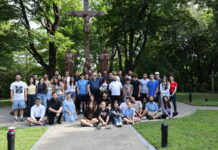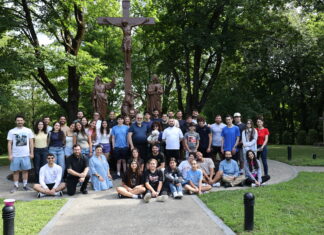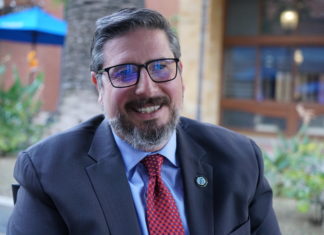By Gabriella Gage
Mirror-Spectator Staff
WORCESTER, Mass. — On Thursday, November 15, the Worcester Armenian Book Commemoration Committee hosted a lecture on “The Power of the Printed Word: Successes and Challenges, Past and Present” at the hall of Church of Our Saviour. A crowd of more than 40 audience members attended the event which featured current perspectives from the editors of two major Armenian-American weeklies, Alin K. Gregorian of the Armenian Mirror-Spectator and Khatchig Mouradian of the Armenian Weekly.
The program was part of the month-long celebration in honor of the 500th anniversary of Armenian book printing, which includes an exhibit featuring Armenian printing, alphabet and calligraphy, along with other texts. The program was initially scheduled for November 7 at the main branch of the Worcester Public Library, where the exhibit runs through the end of November, but was rescheduled due to inclement weather.
Father Khatchadour Boghossian of Armenian Apostolic Holy Trinity Church and Father Aved Terzian of Armenian Church of Our Savior joined together to open the event with a hymn dedicated to the Holy Translators, titled Vork Zataretsi, meaning “Those Who Enhanced the Work.”
Worcester Armenian Book Commemoration Committee Chair Van M. Aroian gave opening remarks, along with a slideshow of the Worcester Library exhibit. Aroian also showed a brief film about Matenadaran manuscript repository in Yerevan.







